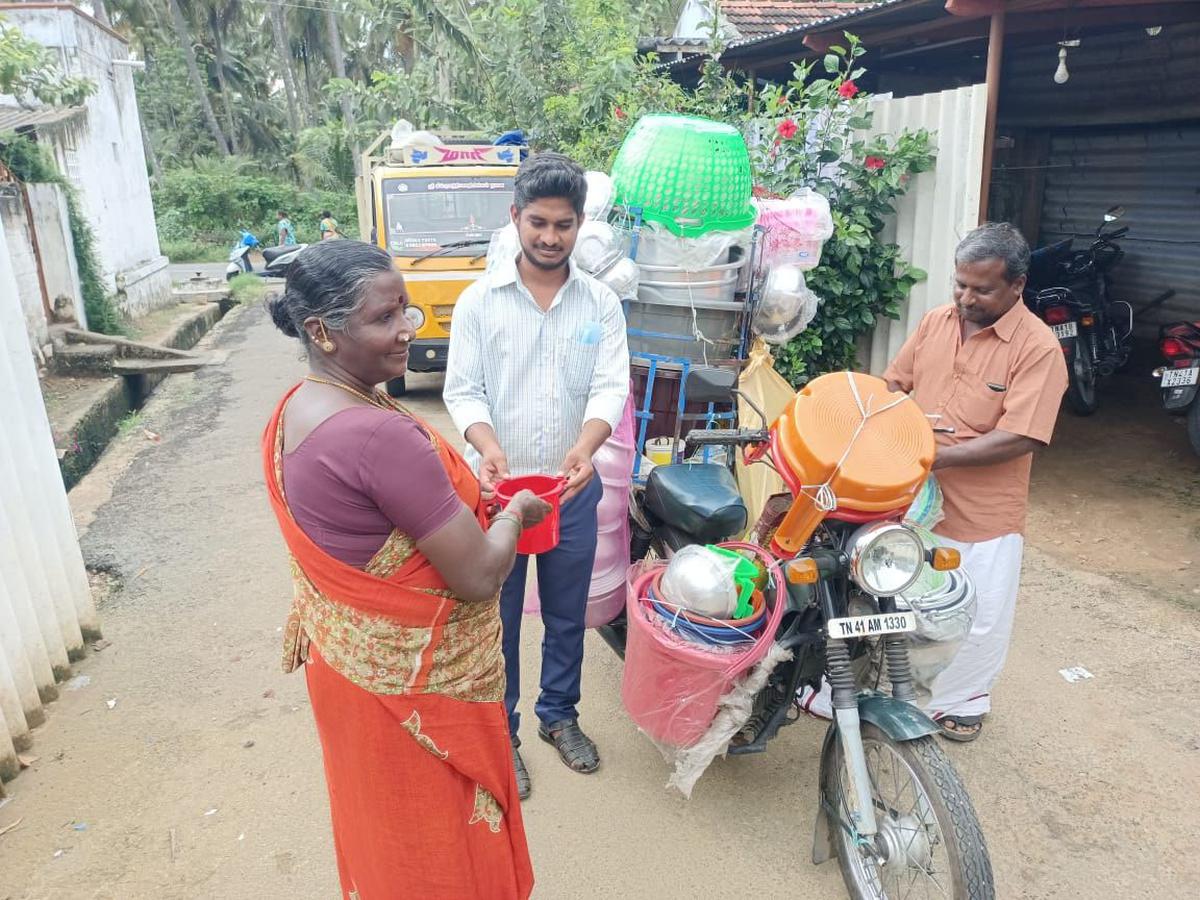
Health Dept. engages scrap collectors to get rid of discarded items to tackle mosquito breeding in Coimbatore
The Hindu
COIMBATORE Stacking unused items such as damaged buckets, utensils, paint cans, and worn-out tyres o
Stacking unused items such as damaged buckets, utensils, paint cans, and worn-out tyres on the premises of houses, to sell them to scrap dealers, is a common practice in villages and urban areas alike. But the recurring showers of the North-East Monsoon can turn them to the breeding sites of aedes aegypti, the primary vector of the virus causing dengue.
To tackle the problem, the Health Department had roped in scrap dealers to get rid of these materials. “Many people keep these materials to sell to scrap dealers due to which they often refuse to discard them when domestic breeding checkers (DBC) approach. Now, health inspectors in all panchayats have roped in scrap dealers through whom the scrap materials are collected in clean-up drives conducted on Thursdays. This has helped in reducing mosquito breeding,” said P. Aruna, Deputy Director of Health Services, Coimbatore district.
The clean-up drive along with scrap dealers was also conducted in places that report an increase in the number of fever cases.
According to Dr. Aruna, the district was witnessing sporadic cases of dengue and there was no significant increase in the numbers, so far.
Some blocks, including Sulur, Madukkarai and Karamadai, are considered as high-risk areas where mosquito breeding and fever cases reported were high. Construction sites, where materials such as drums, paint cans, and barrels are kept, were aiding mosquito breeding. Places where guest workers reside in large numbers were also a cause of concern for the Health Department.
“Though fogging and other source reduction activities are being done by the Department and local bodies, the public should ensure that the premises of their houses and work places are free from mosquito breeding. Waste materials in which rainwater gets stagnated must be discarded properly,” said Dr. Aruna.
She said the Health Department had formed three medical teams each in 12 blocks in the district as part of the monsoon preparedness. Each team comprising a medical officer, a staff nurse, a pharmacist and a lab technician conducted three to four fever camps in schools and villages a day. While medicine was given to persons who come under the outpatient category, those who required treatment were referred to hospitals. In addition, a rapid response team (RRT) for each block and another RRT for the entire district were also actively functioning, said the official.











